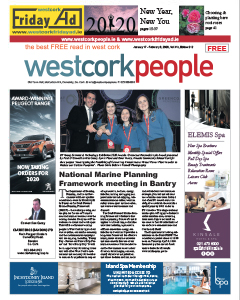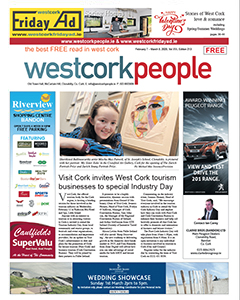Noreen Coomey (BA(Hons) PGDip MIACP) is a coach and psychotherapist practising in West Cork and Ballincollig. She also provides mental health talks and workshops to schools, clubs and workplaces.
Though we make ourselves miserable with our unhelpful thinking, we are often reluctant to notice it, examine it and take steps to change it. We give our thoughts power by engaging in them as if they are factual and correct. When we believe our irrational thinking (Ellis, 1994) we produce two common emotions – guilt from rumination/regret over the past and anxiety from catastrophising/worry about the future. In each of these states we live in our heads rather than directly experiencing the world – we are ‘lost in our thoughts’. Living in the future or the past prevents us from taking intentional growth steps.
When our thinking is distorted (Beck 1976, Ellis 1994) our performance is also affected, with thoughts (cognition) and emotions having an impact on judgements and consequent behaviour. Catastrophising is also known as Murphy’s Law – ‘Anything that can go wrong will go wrong!’ Fifity per cent of my clients suffer from anxiety – their paralysing question being – ‘what if something bad happens and I cannot cope?’ The underlying thinking here is that they don’t trust themselves or their capacity to manage change.
Ellis describes the three basic ‘Musts’, which an individual creates – demands on self, others and the world around him, which can lead to anxiety in self, anger towards others and frustration with the world. He designed the ABC(DE) model now widely used to provide insight into the distorted thinking and behaviour. The attention we give to unproductive thoughts makes them real – we allow them shape our reality by believing and acting upon them. It’s all in our heads!
Before we can change what we are thinking we need to pay attention to what we are thinking. Separating the thoughts from the reality of what we know helps build resilience in coping with the uncertainty and impermanance of the world. Using reasoning and reality-testing we go to an uninhabited neutral zone to dismantle, defuse and make sense of our negative thoughts. This is like a trip into no-man’s-land – a place of uncertainty and fear, full of danger, barbed wire and unexploded landmines and to qoute one client “you didn’t know where the bullets were coming from!”
My clients are always seeking more control and direction over their lives. I believe that they have the inner expertise, experience and potential to find the way forward and to decide the content, theme and goal of the coaching conversation since they are the experts on themselves. At all times I provide a logical, structured framework and narrative space for the work. Cognitive Behavioural Coaching (CBC) provides practical techniques to change behaviour, to achieve insight and improve rational decision-making. We use problem-solving, solution-focused strategies and goal-directed activity to help discover your potential to improve your personal or workplace performance.
As a psychotherapist, I mainly deal with issues of anxiety, stress, relationship problems, workplace pressures and health concerns. I am an accredited member of IACP and abide by their code of ethics in my work. All information and booking on noreencoomey.com.



